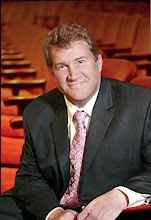 Prosecutors Charge Madoff's Accountant With Fraud
Prosecutors Charge Madoff's Accountant With FraudNEW YORK (AP) ―
David Friehling, accountant to Bernard Madoff, leaves Federal Court in New York after arrest on fraud charges. (File) AP
Bernard Madoff's longtime accountant was arrested on fraud charges Wednesday as authorities blamed him for failing to make the most basic auditing checks that would have exposed an epic fraud that cost investors billions of dollars.David Friehling is the first person to be arrested in the scandal since Madoff turned himself in, and his prosecution signals that the government is intent on bringing Madoff's associates to justice as they try to figure out who helped him carry out the fraud.Prosecutors say the 49-year-old Friehling essentially rubber-stamped Madoff's books for 17 years, serving as Madoff's auditor from 1991 through 2008 while operating from a discreet building in suburban New York. Authorities said that if Friehling had done his job, Madoff's financial statements would have shown his company owed tens of billions of dollars to his customers and was insolvent."Mr. Friehling's deception helped foster the illusion that Mr. Madoff legitimately invested his clients' money," said acting U.S. Attorney Lev L. Dassin. The relationship between the accountant and Madoff was so cozy that Friehling and his family pulled $5.5 million from accounts with Madoff since 2000 and had a balance of more than $14 million as recently as November. Prosecutors said:
"...it's a conflict for accountants to have such large sums invested with clients."
Friehling did not comment as he left the courthouse after being released on bail, and his lawyer, Andrew Lankler, also declined comment.Madoff, 70, confessed to his sons in early December that his investment empire was actually a giant Ponzi scheme in which he paid off old investors with money from new ones. Though he reported to 4,800 investors that they had $65 billion in November, investigators have found only about $1 billion.He pleaded guilty last week and could spend the rest of his life in prison after he is sentenced in June.Prosecutors now believe that Madoff received help from Friehling as he carried out his fraud, although Friehling is not charged with knowing about his Ponzi scheme.The government says Friehling did not meaningfully audit Madoff's business or confirm that securities purportedly held by Madoff's company on behalf of its customers even existed.The Securities and Exchange Commission said Friehling instead...
"pretended to conduct minimal audit procedures"
...of certain accounts to make it seem he was conducting an audit and then failed to document his purported findings and conclusions as he was required to do.Prosecutors said he even failed to examine a bank account through which billions of dollars flowed."He did little or no testing, no verification of the `facts' he certified," said Joseph M. Demarest, head of New York's FBI office. "His job was not merely to rubber-stamp statements he didn't verify. "The SEC said Friehling took steps to hide his personal investment with Madoff, including replacing his own name on his Madoff account with his wife's name and later naming the account the "Friehling Investment Fund" to conceal the conflict of interest.The SEC also accused Friehling of lying to the American Institute of Certified Public Accountants for years, denying he conducted any audit work, because he was afraid that his work for Madoff would be subject to peer review.He was paid a tidy sum by Madoff: Prosecutors said he made between $12,000 and $14,500 a month from 2004 to 2007, amounting to $144,000 to $174,000 annually. If convicted, Friehling faces up to 105 years in prison.
He is charged with securities fraud, aiding and abetting investment adviser fraud and four counts of filing false audit reports with the SEC.The fraud charges against Friehling come just days after the founder of his auditing firm, Jerome Horowitz, died of cancer last week at the age of 80, a family friend said. Horowitz handled Madoff's books for many years before turning the business over to Friehling, who is his son-in-law. The single glass door in Friehling's Rockland County office bears the name "Friehling & Horowitz."Horowitz's lawyer, Latour "L.T." Lafferty, declined to immediately comment on his death or Friehling's arrest Wednesday, but had previously described the two accountants as victims of the scam who were unaware that fraud was taking place.The strain of the Madoff scandal on Friehling began to show in recent months as he put his luxury home in Rockland County on the market.A listing posted on the Web site of Prudential Rand Real Estate said the family is seeking $995,000 for the five-bedroom Colonial. The home was built in 1990 and has a swimming pool and 4,437 square feet of space.It's unclear how the sale will fare because he had to put up his home to make bail.Madoff pleaded guilty to securities fraud, perjury and other charges on Thursday. During his plea, Madoff said he began a Ponzi scheme in the 1990s in response to the pain of a recession — around the time that Friehling took over his accounting. He said he never recovered, though, and knew prison awaited him.Investigators have said they believe investors may have originally put $17 billion or less into accounts with Madoff but that Madoff falsely told them in their financial statements that it had grown to as much as $65 billion.
(© 2009 The Associated Press. All Rights Reserved. This material may not be published, broadcast, rewritten, or redistributed.)
Related Stories:
S. Fla. Madoff Victims Auctioning Off Belongings (3/18/2009)
Madoff Victims Get Relief From IRS (3/18/2009)
Madoff Probe Turns Focus To Wife, Family (3/16/2009)
Documents: Madoff Had Net Worth Of $823 Million (3/14/2009)
Madoff's Lawyers Appeal Ruling On Bail (3/13/2009)


